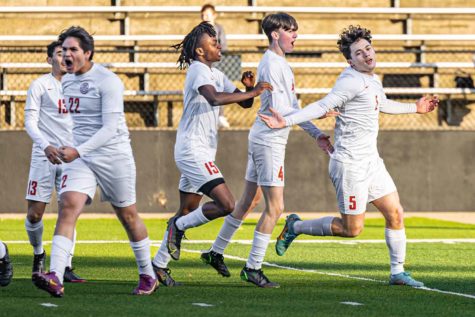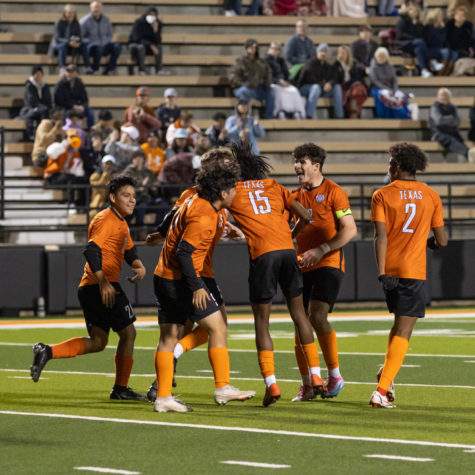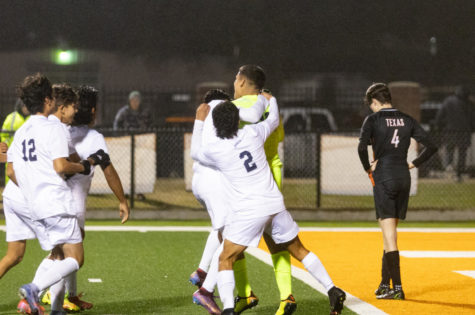Meyers family files wrongful death lawsuit
Stanford University sued for death lawsuit after soccer player commits suicide
Stanford goalkeeper Katie Meyer (19) acknowledges the crowd after a 4-1 win against UCLA in a semifinal of the NCAA Women’s Soccer College Cup at Avaya Stadium on Dec. 6, 2019, in San Jose, California. (Ray Chavez/Bay Area News Group/TNS)
November 28, 2022
Katie Meyers was a student awaiting acceptance into Stanford Law School, and an elite, captain, soccer player at the University.
She was also among the three collegiate athletes the nation lost in a single month back in February of 2022.
After taking a eight months to grieve the loss of their daughter, the Meyers have filed a wrongful death lawsuit against the university, implying that the way they handled disciplinary actions against Katie drove her to an impulsive suicide.
The Meyers’ lawyer, Kim Dougherty, released a statement through SportsIllustrated.
“Stanford has known for years that its disciplinary process, in its own Committee 10’s words, is ‘overly punitive’ and harmful to its students, yet the school and its administrators have done nothing to correct its procedures,” Dougherty said in a formal statement. “Through this litigation we will not only obtain justice for Katie, but also ensure necessary change is put into place to help protect Stanford students and provide safeguards when students are in need of support.”
In their lawsuit, filed Nov. 23, 2022, the family named the entire board of Stanford, the president, dean and deans associates, vice provost, and general counsel. The lawsuit states that Stanford broke several laws in delivering the email to Katie, such as, breach of implied contract, breach of contract, violation of California Education Code Section 66270, negligent infliction of emotional distress and loss of consortium.
Her parents believe, and wrote out in their lawsuit that “Stanford’s after-hours disciplinary charge, and the reckless nature and manner of submission to Katie, caused Katie to suffer an acute stress reaction that impulsively led to her suicide.”
Stanford University spokesperson, Dee Mostofi, released a statement to CNN to refute the claims made by the Meyers in their lawsuit.
In her statement, Mostofi wrote that the university has continued to grieve the death of Meyers, “However, we strongly disagree with any assertion that the university is responsible for her death. While we have not yet seen the formal complaint brought by the Meyers family, we are aware of some of the allegations made in the filing, which are false and misleading.”
Before her death, Meyers faced disciplinary action for spilling a coffee on a member of the Stanford football team who, allegedly, sexually assaulted a friend and teammate of Katie’s. Meyers was standing up for her peer, who was only a minor at the time.
On the night of Feb. 28, Meyers spoke to her family regarding spring break, and seemed to be in good spirits.
Campus officials reported her dead the same night.
The lawsuit bases its argument on the fact that on the night of her death, the university “recklessly and negligently” sent Meyers a formal email containing the details of her disciplinary hearing that “contained threatening language regarding sanctions and potential ‘removal from the university.'”




















